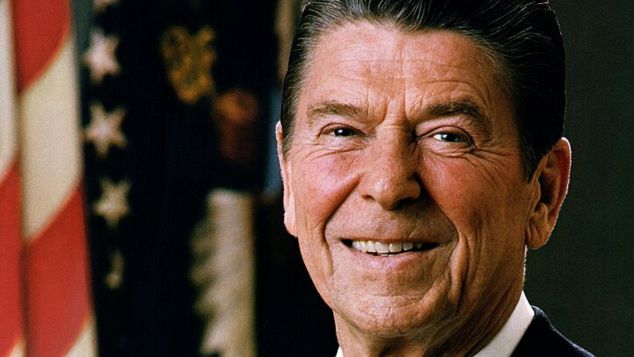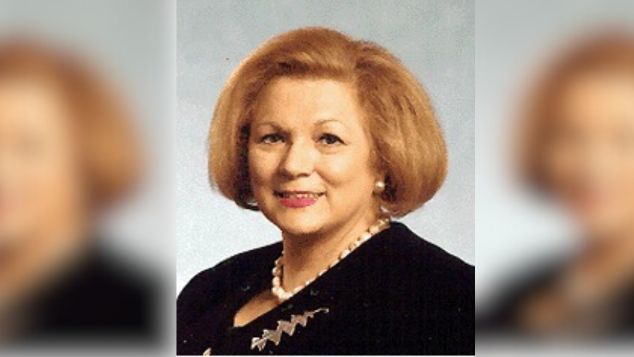In 1987 US President Ronald Regan started to take action on HIV
On this day in 1987 the Commission formed by President Ronald Reagan to address the growing HIV epidemic in the USA met for the first time.
Reagan had been criticised for failing to quickly take action on the issue of HIV which was first detected in 1981. In late June 1987 he signed an executive order appointing W. Eugene Mayberry, the CEO of the Mayo Clinic to chair the new commission.
In the lead up to the group’s first meeting there had been considerable focus around who the members of the commission would be with conservative politicians arguing that anyone from the LGBT communities should be exempt.

While the commission included sex educator Dr Teresa L Crenshaw who was opposed to the promotion of condom use as a way to prevent HIV, Catholic Cardinal Kohn O’Connor, and conservative politician Penny Pullen – who argued that people should face mandatory tests for HIV before marriage, one gay man with hands on experience of the battling the virus was included.
Dr Frank Lily, a geneticist had served on the board of the Gay Men’s Health Crisis, the community lead group that had been at the forefront of providing assistance to people and pushing for government action. Lily became one of the first openly gay people to be appointed to a role by a US President.
His appointment was criticised. One Republican politician New Hampshire representative Gordon Humphrey said the President “should strive at all costs to avoid sending the message to society—especially to impressionable youth—that homosexuality is simply an alternative lifestyle” and said President Reagan should have named heterosexual experts to the commission.
While there was concern that the commission filled with conservative voices would not take sufficient action to combat the growing rates of HIV in the USA, many were surprised by its report delivered a year later that called on the government to spend USD$20 billion and follow a decade long plan of action.

In 1991 NSW politician Franca Arena caused a furor by saying there were “innocent” and “other” people with AIDS.
Franca Arena served as a member of the New South Wales parliament from 1981 until her retirement in 1999. She was elected as a member of the Labor party but sat as an independent for her final two years in parliament.
In 1991 Arena was the chair of a parliamentary inquiry into financial assistance for people who acquired HIV medically. She was criticised for reportedly saying there was a difference between people who medically acquired HIV, who she considered to be “innocent” and those who caught the virus through sexual activity or drug use.
Arena said the New South Wales AIDS Council (ACON) was dominated by gay people. Her comments drew condemnation from LGBTIQA+ rights groups, most prominently ACT UP.
The comments caused days of newspaper headlines and debate on Sydney talkback radio. Some of the commentary criticised Arena’s views but many felt she was being treated unfairly by the LGBT communities.
Days later Arena held a news conference accusing gay activists of planning a poster campaign that would have outed her sons as homosexuals. Arena claimed a group called Queer Nation was behind the campaign, which she’d been informed of by a journalist at the Sydney Morning Herald.
There was little evidence that a poster campaign was ever planned, and it never occurred, but the newspaper was filled with stories highlighting that gay groups were targeting the politician. “Vicious Gay Campaign Against Franca Arena” read one headline. The paper also ran a feature article titled “Gay Guerillas Come Out to Prey”.
In her autobiography, Arena later spoke about how discovering that her twin sons were both gay years earlier had been a devastating experience for her, saying it left her “broken hearted”.
“Both boys told us that they were homosexuals and that they had had relationships. I know that our sons were, by then, adults and most people would think that they were entitled to have whatever relationships they wanted, but we had been a very close family and my husband and I were broken-hearted.” Arena wrote in her book, an extract of which was published in The Sydney Morning Herald.
“It is a lot easier to accept other people’s gay sons and daughters, but it is a different thing when you discover that your only two sons are both gay. It was the realisation that we would never have a family, that little Franca would never be born and that our family would die with us.”
Arena shared that she’d suffered severe depression at the discovery and said that her religious beliefs and belief in the importance of families was of a big factor in the way she responded. Arena’s depression led to her experiencing suicide ideation.
The politician said she had a strong dislike for the “gay scene” because people were obsessed with sex and blamed a counselling service at Sydney Hospital for failing to maintain confidentiality about her son’s sexuality.
“I learned months later that they had gone to the gay counselling service at Sydney Hospital, next to Parliament House, but it was a really militant gay counselling service, staffed by people who would not have helped our sons in understanding the way we felt.
“On the contrary, the information that the two sons of a member of parliament were gay was spread instantly and in no time at all the whole gay community knew. So much for the supposed confidentiality of counselling services!” Arena said in her book.
The politician became estranged from both her sons, but later reconciled. In 2002 she said she no longer had an issue with her son’s sexuality.
Australian composer Lyle Chan composed a massive musical project for a string quartet that charted Australia’s journey through the AIDS epidemic.
Chan had been a member of ACT UP in the USA and when he arrived in Australia in 1990, he joined the local branch.
A year later he attended Arena’s parliamentary committee hearings to protest the move to distinguish between “innocent” people experiencing HIV and everyone experiencing HIV. After the hearing he unexpectedly found himself standing in the corridors of parliament next to Arena, and began questioning her on her views.
He recounted the interaction on his website.
“This was unplanned. The unexpected proximity with her made my activist training kick in. I started directing questions at her, fully expecting answers – doesn’t she realise she’s pitting people with AIDS against one another by throwing crumbs and asking them to scramble for scraps? Why can’t she focus on the important issues, like getting new drugs for people to live longer, rather than giving them meaningless money to spend during their painfully shortening lives?” Chan recalled.
“With every question that she refused to answer, I raised my voice. She tried to walk away but I followed her until she disappeared through a door. All the media had left by then, except Channel 9. It was the only station to catch it on camera, to the chagrin of other media who tried to grab interviews later but didn’t have the “money shot” of the confrontation moment. And then I was ejected by security.”
Chan said that while he disagreed with Arena’s position and statements, he later realised that she must have been going through a tough time personally.
Three sections of his epic classical work reflect on this moment in Australia’s journey with HIV. The section is called Mark and Adrian Are Her Sons.
Listen to all of String Quartet and AIDS Activist’s Memoir in Music.
OIP Staff, This post was first published in 2023.
Do you need some support?
If you are struggling with anxiety or depression, support and counselling are available from:
QLife: 1800 184 527 / qlife.org.au (Webchat 3pm – midnight)
QLife are a counselling and referral service for LGBTQIA+ people.
DISCHARGED: info@discharged.asn.au / discharged.asn.au
Discharged is a trans-led support service with peer support groups for trans and gender diverse folks.
Lifeline: 13 11 14 / lifeline.org.au
Beyondblue: 1300 22 4636 / www.beyondblue.org.au




